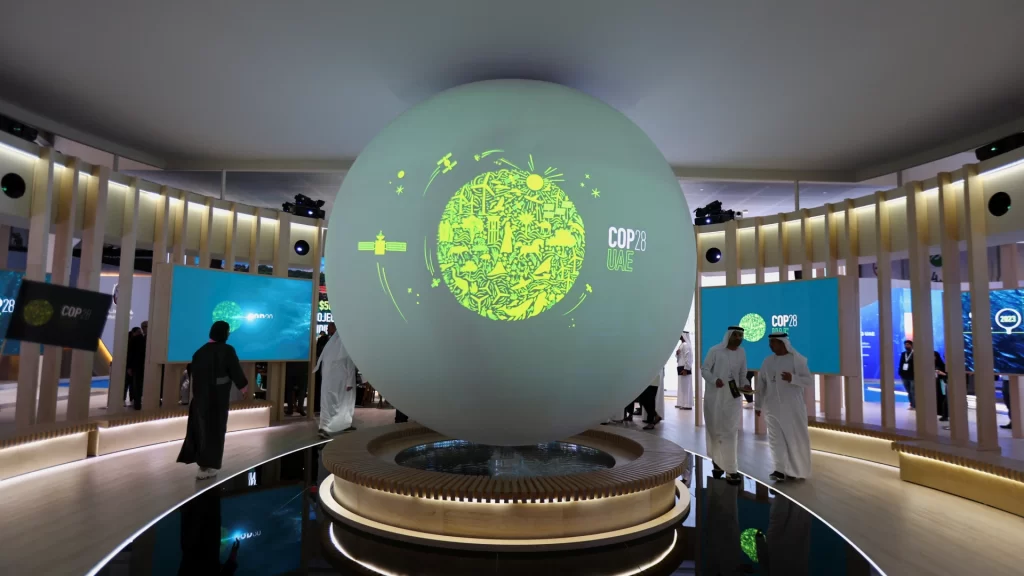The United Arab Emirates (UAE) is embarking on a remarkable journey towards a sustainable future by implementing renewable energy efficiency programs. Recognizing the impacts of climate change and the need to diversify its energy sources, the UAE is taking bold steps to reduce its carbon footprint and create a sustainable path forward.
One of the UAE’s significant initiatives is the Net Zero by 2050 Strategic Initiative, making it the first country in the Middle East to commit to such an ambitious goal. This initiative aligns with the Paris Agreement and the UAE’s vision for development, aiming to create new knowledge, green industries, and job opportunities.
The UAE Energy Strategy 2050 sets clear targets for its energy mix, with a vision to achieve 44% clean energy, 38% gas, 12% clean coal, and 6% nuclear power. This strategy aims to increase the contribution of clean energy to the total energy mix, reduce carbon emissions, and enhance energy efficiency by 40% for individuals and corporations.
Despite being a major oil and gas producer, the UAE understands the importance of diversifying its energy mix. In a groundbreaking move, state-owned companies such as Abu Dhabi National Oil Company, Taqa, and Mubadala have partnered with renewable energy company Masdar. This collaboration positions Masdar as one of the largest clean energy companies globally, with a commitment to expand its clean energy capacity to over 50 GW by 2030. This shift demonstrates that the UAE is determined to reduce its dependence on fossil fuels and embrace renewable energy sources.
The UAE’s commitment to clean energy is not limited to renewables alone. The country operates three nuclear power reactors that contribute to its energy grid and boasts three of the world’s largest and most cost-effective solar plants. By embracing a diverse energy portfolio that includes renewable, nuclear, and clean coal sources, the UAE aims to meet its economic requirements while achieving its environmental goals.
As the first country in the region to deploy industrial-scale carbon capture technology, The UAE is mindful of the carbon impact of hydrocarbon fuels. It is committed to making its oil and gas sector as low-carbon as possible. By utilizing advanced technologies and optimizing its resources, the UAE’s hydrocarbons are among the least carbon-intensive in the world.
Furthermore, the UAE is actively engaging in renewable energy competitive auctions, joining leading countries worldwide in driving the growth of renewables. By adopting international renewable energy certificates, the UAE ensures the reliable tracking and verification of renewable energy sources, promoting transparency and accountability.
The UAE’s commitment to renewable energy extends beyond its borders. Through partnerships and agreements, Recently, the UAE is investing in large-scale wind farms in Egypt, supporting clean energy development in neighbouring countries and contributing to regional sustainability.
With the upcoming United Nations Climate Change Conference, COP28, to be hosted by the UAE, the country has the opportunity to showcase its clean energy projects and lead discussions on global climate action.
COP28 in the UAE marks a significant opportunity for global collaboration and progress in addressing climate change. It calls for increased ambition and commitment from all nations to fulfil the objectives set out in the Paris Agreement. The conference will adopt an inclusive approach, emphasizing the importance of leaving no one behind in climate action. Transformation, solidarity, pragmatism, and inclusivity will be the guiding principles underlying all efforts.
Scheduled to take place from November 30 to December 12, 2023, at Expo City in Dubai, the UAE aims to use COP28 as a platform to promote practical and positive solutions that benefit both the climate and the economy. The country is committed to providing support and assistance to vulnerable communities. The UAE is dedicated to ensuring inclusivity by taking into account the perspectives and input of various geographies, sectors, and stakeholders.
The Mohammed bin Rashid Al Maktoum Solar Park, one of the world’s largest solar energy projects, stands as a testament to the UAE’s dedication to clean and renewable energy solutions.
The UAE’s renewable energy revolution serves as an inspiration to nations worldwide. It demonstrates that even countries rich in fossil fuel resources can proactively transition to a sustainable energy future. The UAE’s commitment to diversification, renewable energy deployment, and technological advancements paves the way for a greener and more sustainable world.
As the UAE continues its journey towards comprehensive sustainable development, it offers valuable lessons to countries worldwide. By prioritizing clean energy, preserving natural resources, and reducing carbon emissions, the UAE sets an example for others to follow. The UAE’s renewable energy revolution is about powering its economy and securing a sustainable and prosperous future for generations to come.


